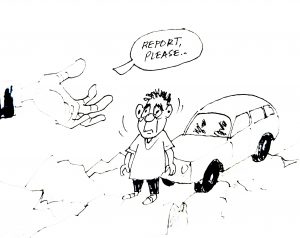Ordinary citizens are wondering how the Department of Public Works and Highways (DPWH), in Samar particularly, addresses the needed repairs on badly-damaged portions of the road that now abound along the stretch of Maharlika Highway in Samar.
There is no doubt that the department should attend to these terrible damages that endanger motorists every day. The huge cracks and holes had multiplied over the years, and during these rainy days when those holes are covered with water, motorists can no longer tell how deep they are, or whether or not they are there. These roads, then, had become treacherously dangerous this rainy season as potential causes for accidents.
Based on some reports, this department tasked to monitor and maintain the usefulness of public highways merely waits for complaints from concerned citizens as to what the damage is, where it is located, and what its damage extent is. This means that a formal report containing these pieces of information should be submitted to them for necessary action. Without it, as it implies, the people in this department would not move a finger for action.
The problem is, who would be doing those complaints and reports? Ordinary motorists and commuters cannot do them for lack of knowledge. Working professionals cannot as they have their tasks to attend to. Besides, even if those formal reports are submitted, there is no assurance that they can be processed right away given the department’s other priorities. In short, such an entire process will take a long time before the necessary action is done.
Instead of waiting for complaints and reports from people, why can’t DPWH field some agents to monitor the state of the roads and come up with the needed information? Action and initiatives should come from them, not from the people. They should frequently identify and assess the needed repairs so that they will not worsen over time and multiply in number. This, no doubt, is an important part of their job.




